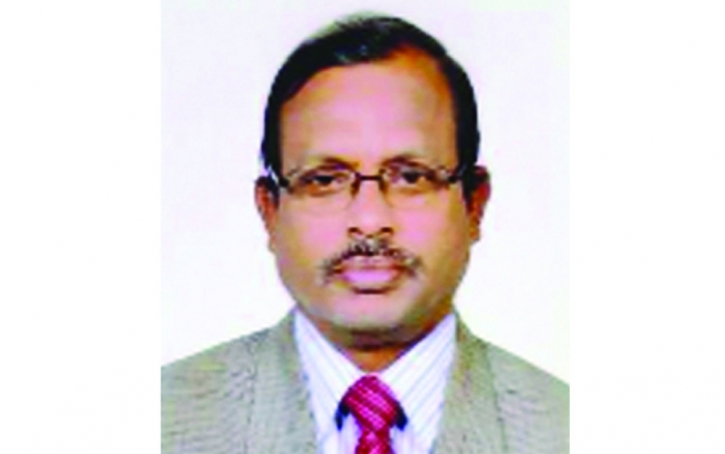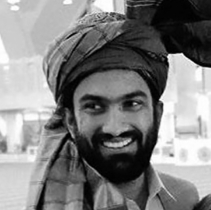
The Verdict in Bangladesh court against Dr. Yunus about violating labor rights at the Grameen Telecom on 1 January 2024 sparked a debate about the truth and fiction of labor rights in Bangladesh and beyond. It has focused on the operations of the Grameen Telecom. The unfolding story of Grameen Telecom has become a modern-day surprise, shaping a critical chapter in Bangladesh's history and raising vital questions about the trajectory of freedom and accountability. The Bangladesh telecom law includes provisions within the labor law to safeguard the job security and benefits of employees in cellular phone operators. This legal framework is crucial for protecting the often-precarious employment status of these workers. The amended law of 2013 entitles the employees to claim a 5% share of the total profit, addressing previous gaps in legal obligations for the employees of telecom operators. But Grameen Telecom faced charges and received sentences, making the case unremarkable in retrospect.
Grammen Telecom’s Journey from Non-Profit to Profitable Multi-business Structure in Just Two Decades
Dr. Yunus obtained a telecommunications license from Prime Minister Sheikh Hasina in 1997 to establish Grameen Telecom, leading to the development of the prominent telecom brand, Grameenphone. Advocating for connectivity to uplift the lives of the poor, he initially positioned the venture as a service-oriented, non-profit organization. Despite its original non-profit status, Grameen Telecom underwent a significant transformation under Dr. Yunus's leadership, allegedly involving corruption. Most of Grameenphone's shares were purportedly transferred to foreign entities, raising concerns about the impact on the nation's destiny.
Dr. Yunus is accused of evading approximately Tk 1,000 crore in taxes from Grameen Telecom and channeling funds abroad under the pretext of 'social business.' Despite the company's ownership structure as a trust with no individual ownership, it receives an annual dividend exceeding Tk 10 billion from Telenor, a Norwegian telecom giant. However, allegations suggest that Dr. Yunus embezzles billions from Grameen Telecom's dividends each year, laundering the funds abroad under the guise of social business. About 42.6 percent of the dividend income was reportedly transferred to Grameen Kalyan in violation of legal provisions. Despite legal obligations, a review of audited accounts indicates that nearly half of the dividend income is paid to Grameen Kalyan, subject only to advance income tax rates of 10-20 percent.
The apparent discrepancy between corporate and dividend tax rates is considered tax evasion, as Grameen Kalyan is allegedly not entitled to Grameen Telecom's dividend income under existing laws. The cumulative tax evasion from Grameen Telecom alone is estimated to be Tk 10 billion. Other companies under Dr. Yunus's control and his personal income tax are also accused of widespread tax evasion over the years.
Over the 26-year period, it is alleged that approximately one thousand crores of tax was evaded. Dr. Yunus reportedly evaded taxes at rates ranging from 15 to 25 percent per fiscal year. Specifically, from 1997 to 2005, he allegedly evaded 25 percent tax annually, paying only 10 percent of the 35 percent due. From 2006 to 2008, the purported tax evasion rate was 20 percent, with payments at 15 percent against the 35 percent tax rate. Finally, from 2009 to 2022, Grameen Telecom allegedly paid only 20 percent tax against the 35 percent rate per fiscal year.
While they express positive sentiments on paper, the actual internal governance within the organization is subpar. Grameen Telecom (GTC) is a Not-for-Profit Company established by Muhammad Yunus, holding a partial stake in Grameen Phone (GP) and pioneering the Village Phone program.
Allegations of Supporting Grameen Telecom's Corruption
Matthew Miller, the US Department of State Spokesperson, addressed worker rights and wage protests in Bangladesh on November 8, 2023, despite issues in the US and their friend's organization, Grameen Telecom. Miller emphasized fair labor practices, acknowledging worker concerns and committing to address issues diplomatically, promoting just working conditions. But what about Grameen Telecom? On November 16, 2023, the United States unveiled a new labor rights policy through the Presidential Memorandum titled "Advancing Worker Empowerment, Rights, and High Labour Standards Globally." Led by US Secretary of State Antony Blinken, the policy aims to strengthen both domestic and international workers' rights. Key features include the authority for the US administration to impose sanctions, trade penalties, and visa restrictions on entities violating labor rights. The policy emphasizes a whole-of-government approach, directing officials to engage actively in labor diplomacy.
It underscores the importance of worker empowerment for democracy, economic growth, supply chain resilience, and fairness for American workers and companies. Collaboration with interagency partners and the use of diplomatic, foreign assistance, law enforcement, and global trade tools are highlighted to raise global labor standards. The policy emphasizes consistency with international obligations and adopts a comprehensive strategy involving multiple government agencies to promote worker empowerment, unions, and high labor standards. However, scrutiny of their own situation and that of their friends seems overlooked in the policy's rhetoric.
Various international bodies exist to address such issues, yet they too face challenges and criticism, sometimes undermining their effectiveness. International frameworks governing human rights form the cornerstone for establishing corporate obligations in respecting human rights. The Universal Declaration of Human Rights, enacted in 1948, serves as the primary foundation for human rights standards, complemented by the International Covenant on Civil and Political Rights and the International Covenant on Economic, Social, and Cultural Rights, collectively constituting the International Bill of Human Rights.
The International Labour Organization's (ILO) Declaration on Fundamental Principles and Rights at Work, a product of the UN agency, outlines eight fundamental conventions, encompassing freedom of association, the right to collective bargaining, and the elimination of forced labor, child labor, and workplace discrimination. The UN Guiding Principles on Business and Human Rights, endorsed by the UN Human Rights Council in 2011, emerge as the globally recognized standard for averting and addressing human rights harm associated with business activities.
The UN Global Compact, the world's most extensively adopted corporate sustainability initiative, encompasses ten principles urging companies to align their strategies with universal principles on human rights, labor, environment, and anti-corruption. These principles encompass supporting and respecting internationally proclaimed human rights, avoiding complicity in human rights abuses, and addressing labor rights in line with the ILO Declaration on Fundamental Principles and Rights at Work.
Advocacy of International Frameworks and the Grameen Telecom
The conspicuous absence of the implementation of these international frameworks within Grameen Telecom raises questions, particularly considering the close affiliations the chair holds with Western leaders. It appears paradoxical that the self-proclaimed champions of human rights and labor rights, who articulate these laws, engage in public relations exercises, often driven by misinformation and taken out of context, yet falter in enforcing them within the sphere of their associates, such as the Grameen Telecom.
The very individuals who claim to carry the torch for human rights seem ineffective when it comes to applying these principles to their close allies. Despite their adeptness in drawing attention to global issues, they seem reluctant or incapable of ensuring adherence to the standards they advocate, especially when dealing with entities connected to them personally. This apparent double standard raises concerns about the sincerity and consistency of their commitment to the principles they espouse, leaving room for skepticism regarding the true extent of their dedication to upholding human and labor rights.
The situation underscores a potential gap between advocacy and action, prompting a critical examination of the motives behind such selective implementation of international frameworks within the context of personal affiliations and connections. It challenges the credibility of those advocating for these rights, prompting a nuanced analysis of their commitment to the principles they vehemently endorse on the global stage. It is crucial to recognize that Bangladesh has been consistently addressing its legal system, as evident in the recent verdict concerning Dr. Yunus. This verdict exemplifies the nation's commitment to transparency and justice, showcasing its efforts to uphold the rule of law. The scrutiny from international entities should consider the context of ongoing domestic efforts to strengthen legal frameworks and ensure a fair judicial process.
Author: Director, Centre for South Asian Studies (CSAS), Dhaka.
The Verdict in Bangladesh court against Dr. Yunus about violating labor rights at the Grameen Telecom on 1 January 2024 sparked a debate about the truth and fiction of labor rights in Bangladesh and beyond. It has focused on the operations of the Grameen Telecom. The unfolding story of Grameen Telecom has become a modern-day surprise, shaping a critical chapter in Bangladesh's history and raising vital questions about the trajectory of freedom and accountability. The Bangladesh telecom law includes provisions within the labor law to safeguard the job security and benefits of employees in cellular phone operators. This legal framework is crucial for protecting the often-precarious employment status of these workers. The amended law of 2013 entitles the employees to claim a 5% share of the total profit, addressing previous gaps in legal obligations for the employees of telecom operators. But Grameen Telecom faced charges and received sentences, making the case unremarkable in retrospect.
Grammen Telecom’s Journey from Non-Profit to Profitable Multi-business Structure in Just Two Decades
Dr. Yunus obtained a telecommunications license from Prime Minister Sheikh Hasina in 1997 to establish Grameen Telecom, leading to the development of the prominent telecom brand, Grameenphone. Advocating for connectivity to uplift the lives of the poor, he initially positioned the venture as a service-oriented, non-profit organization. Despite its original non-profit status, Grameen Telecom underwent a significant transformation under Dr. Yunus's leadership, allegedly involving corruption. Most of Grameenphone's shares were purportedly transferred to foreign entities, raising concerns about the impact on the nation's destiny.
Dr. Yunus is accused of evading approximately Tk 1,000 crore in taxes from Grameen Telecom and channeling funds abroad under the pretext of 'social business.' Despite the company's ownership structure as a trust with no individual ownership, it receives an annual dividend exceeding Tk 10 billion from Telenor, a Norwegian telecom giant. However, allegations suggest that Dr. Yunus embezzles billions from Grameen Telecom's dividends each year, laundering the funds abroad under the guise of social business. About 42.6 percent of the dividend income was reportedly transferred to Grameen Kalyan in violation of legal provisions. Despite legal obligations, a review of audited accounts indicates that nearly half of the dividend income is paid to Grameen Kalyan, subject only to advance income tax rates of 10-20 percent.
The apparent discrepancy between corporate and dividend tax rates is considered tax evasion, as Grameen Kalyan is allegedly not entitled to Grameen Telecom's dividend income under existing laws. The cumulative tax evasion from Grameen Telecom alone is estimated to be Tk 10 billion. Other companies under Dr. Yunus's control and his personal income tax are also accused of widespread tax evasion over the years.
Over the 26-year period, it is alleged that approximately one thousand crores of tax was evaded. Dr. Yunus reportedly evaded taxes at rates ranging from 15 to 25 percent per fiscal year. Specifically, from 1997 to 2005, he allegedly evaded 25 percent tax annually, paying only 10 percent of the 35 percent due. From 2006 to 2008, the purported tax evasion rate was 20 percent, with payments at 15 percent against the 35 percent tax rate. Finally, from 2009 to 2022, Grameen Telecom allegedly paid only 20 percent tax against the 35 percent rate per fiscal year.
While they express positive sentiments on paper, the actual internal governance within the organization is subpar. Grameen Telecom (GTC) is a Not-for-Profit Company established by Muhammad Yunus, holding a partial stake in Grameen Phone (GP) and pioneering the Village Phone program.
Allegations of Supporting Grameen Telecom's Corruption
Matthew Miller, the US Department of State Spokesperson, addressed worker rights and wage protests in Bangladesh on November 8, 2023, despite issues in the US and their friend's organization, Grameen Telecom. Miller emphasized fair labor practices, acknowledging worker concerns and committing to address issues diplomatically, promoting just working conditions. But what about Grameen Telecom? On November 16, 2023, the United States unveiled a new labor rights policy through the Presidential Memorandum titled "Advancing Worker Empowerment, Rights, and High Labour Standards Globally." Led by US Secretary of State Antony Blinken, the policy aims to strengthen both domestic and international workers' rights. Key features include the authority for the US administration to impose sanctions, trade penalties, and visa restrictions on entities violating labor rights. The policy emphasizes a whole-of-government approach, directing officials to engage actively in labor diplomacy.
It underscores the importance of worker empowerment for democracy, economic growth, supply chain resilience, and fairness for American workers and companies. Collaboration with interagency partners and the use of diplomatic, foreign assistance, law enforcement, and global trade tools are highlighted to raise global labor standards. The policy emphasizes consistency with international obligations and adopts a comprehensive strategy involving multiple government agencies to promote worker empowerment, unions, and high labor standards. However, scrutiny of their own situation and that of their friends seems overlooked in the policy's rhetoric.
Various international bodies exist to address such issues, yet they too face challenges and criticism, sometimes undermining their effectiveness. International frameworks governing human rights form the cornerstone for establishing corporate obligations in respecting human rights. The Universal Declaration of Human Rights, enacted in 1948, serves as the primary foundation for human rights standards, complemented by the International Covenant on Civil and Political Rights and the International Covenant on Economic, Social, and Cultural Rights, collectively constituting the International Bill of Human Rights.
The International Labour Organization's (ILO) Declaration on Fundamental Principles and Rights at Work, a product of the UN agency, outlines eight fundamental conventions, encompassing freedom of association, the right to collective bargaining, and the elimination of forced labor, child labor, and workplace discrimination. The UN Guiding Principles on Business and Human Rights, endorsed by the UN Human Rights Council in 2011, emerge as the globally recognized standard for averting and addressing human rights harm associated with business activities.
The UN Global Compact, the world's most extensively adopted corporate sustainability initiative, encompasses ten principles urging companies to align their strategies with universal principles on human rights, labor, environment, and anti-corruption. These principles encompass supporting and respecting internationally proclaimed human rights, avoiding complicity in human rights abuses, and addressing labor rights in line with the ILO Declaration on Fundamental Principles and Rights at Work.
Advocacy of International Frameworks and the Grameen Telecom
The conspicuous absence of the implementation of these international frameworks within Grameen Telecom raises questions, particularly considering the close affiliations the chair holds with Western leaders. It appears paradoxical that the self-proclaimed champions of human rights and labor rights, who articulate these laws, engage in public relations exercises, often driven by misinformation and taken out of context, yet falter in enforcing them within the sphere of their associates, such as the Grameen Telecom.
The very individuals who claim to carry the torch for human rights seem ineffective when it comes to applying these principles to their close allies. Despite their adeptness in drawing attention to global issues, they seem reluctant or incapable of ensuring adherence to the standards they advocate, especially when dealing with entities connected to them personally. This apparent double standard raises concerns about the sincerity and consistency of their commitment to the principles they espouse, leaving room for skepticism regarding the true extent of their dedication to upholding human and labor rights.
The situation underscores a potential gap between advocacy and action, prompting a critical examination of the motives behind such selective implementation of international frameworks within the context of personal affiliations and connections. It challenges the credibility of those advocating for these rights, prompting a nuanced analysis of their commitment to the principles they vehemently endorse on the global stage. It is crucial to recognize that Bangladesh has been consistently addressing its legal system, as evident in the recent verdict concerning Dr. Yunus. This verdict exemplifies the nation's commitment to transparency and justice, showcasing its efforts to uphold the rule of law. The scrutiny from international entities should consider the context of ongoing domestic efforts to strengthen legal frameworks and ensure a fair judicial process.
Author: Director, Centre for South Asian Studies (CSAS), Dhaka.





































